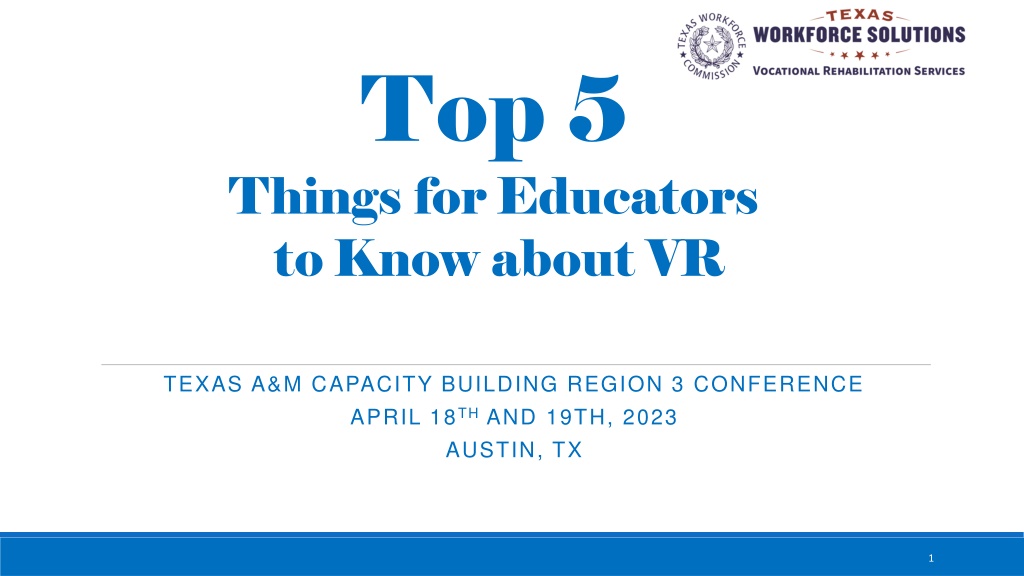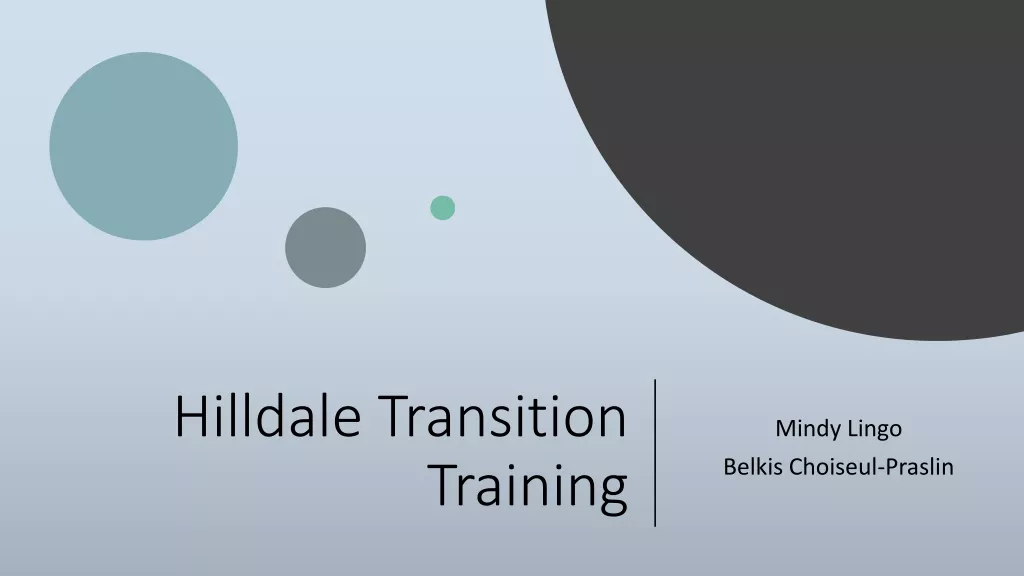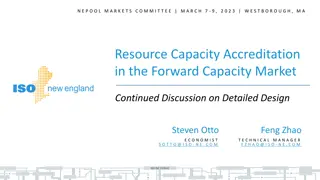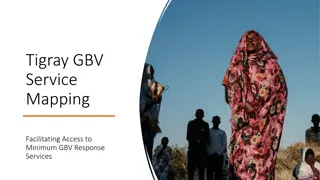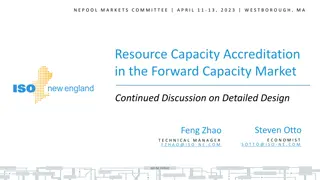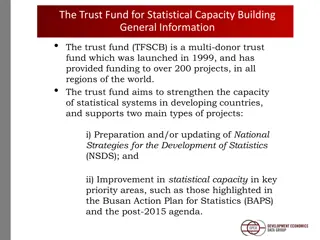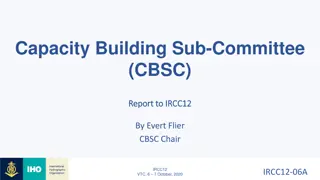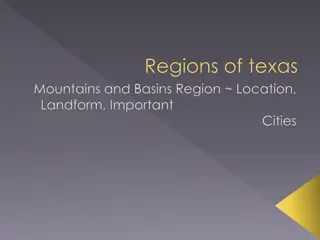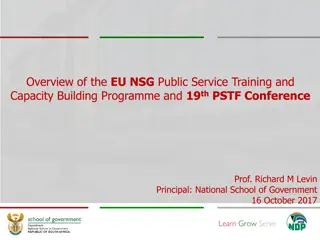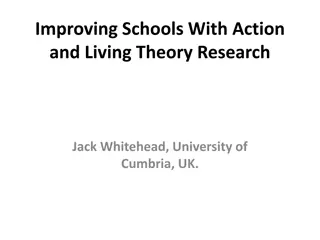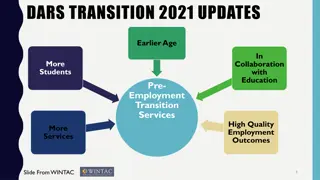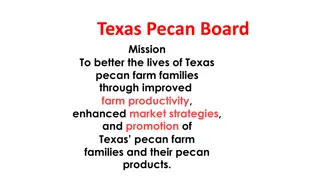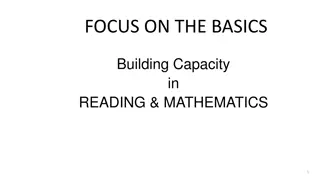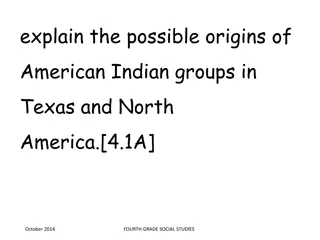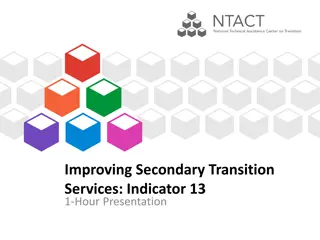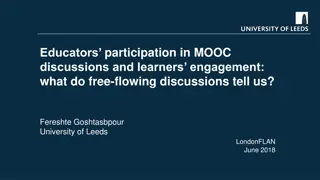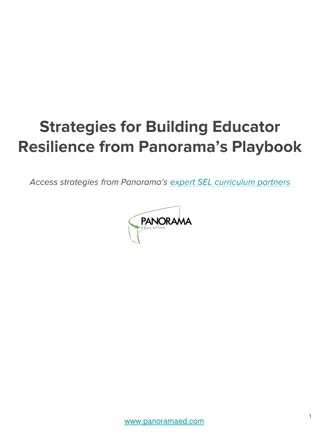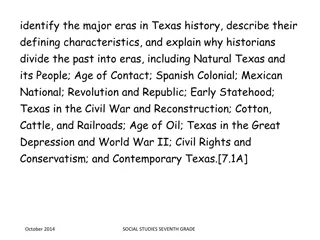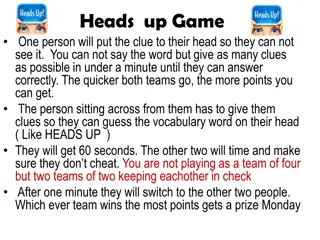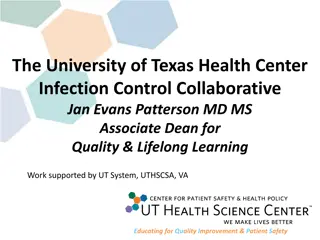Insights Into VR and Transition Services for Educators at the Texas A&M Capacity Building Region 3 Conference
Educators attending the Texas A&M Capacity Building Region 3 Conference in April 2023 will gain valuable insights into Vocational Rehabilitation (VR) programs, Pre-Employment Transition Services (Pre-ETS), WIOA requirements, and more. The event will feature presenters discussing key topics such as understanding Pre-ETS, differences between potentially eligible and VR eligibility, MOUs, supplementing vs. supplanting, appropriate referrals, and success stories. Attendees will also learn about Transition Services, Pre-ETS categories, and when to use potentially eligible criteria for younger students. Don't miss this opportunity to enhance your knowledge and skills in supporting students with disabilities.
Download Presentation

Please find below an Image/Link to download the presentation.
The content on the website is provided AS IS for your information and personal use only. It may not be sold, licensed, or shared on other websites without obtaining consent from the author. Download presentation by click this link. If you encounter any issues during the download, it is possible that the publisher has removed the file from their server.
E N D
Presentation Transcript
Top 5 Things for Educators to Know about VR TEXAS A&M CAPACITY BUILDING REGION 3 CONFERENCE APRIL 18THAND 19TH, 2023 AUSTIN, TX 1
Presenters Presenters ERIN WILDER, M.ED., C.R.C. LEIGH ANN GODINEZ, CRC, LPC PROGRAM SPECIALIST FOR TRANSITION PROGRAM MANAGER FOR TRANSITION AND PRE-EMPLOYMENT TRANSITION SERVICES (PRE-ETS) 2
Agenda Agenda Background Info about WIOA Top 5 Things for Educators to Know about VR: 1. What is Pre-ETS? 2. Difference Between Potentially Eligible and VR Eligibility 3. Memorandum of Understanding (MOU): TWC and TEA 4. Supplementing vs. Supplanting 5. Appropriate Referrals & How to Make a Referral Time for Q&A and Discussion about Success Stories 3
Background Info: Background Info: Workforce Innovation and Opportunity Act (WIOA) WIOA, passed in July 2014, introduced new requirements for Vocational Rehabilitation programs. Key terms: Student with a disability: an individual, age 14-22, who has a disability and is enrolled in high school or a recognized post- secondary program. Pre-Employment Transition Services (Pre-ETS): services provided to students with disabilities while in high school to better prepare them for employment, independent living, and social skills. Potentially Eligible: An alternate to VR eligibility that is intended to make Pre-ETS more easily available for students with a disabilities. 4
Transition Services Transition Services are a subset of VR Services and Pre-ETS are a subset of Transition Services. Transition Services Pre- ETS VR Services 5
Pre-ETS In most cases, the services provided to students with disabilities fall into one of these 5 Pre-Employment Transition Services (Pre-ETS) categories: 1. Career Exploration 2. Work-Based Learning 3. Counseling on Post-Secondary Opportunities 4. Job Readiness 5. Self-Advocacy Note: Multiple services are available for each of these categories. 6
When To Use Potentially Eligible 7 Use Potentially Eligible for a Younger Student When: a) The Student will only need Pre-ETS at this time; b) The Student has not expressed interest in applying for VR services; c) The Student would like to participate in a Pre-ETS activity in the immediate future; or d) The Student is at the beginning of their career exploration with limited experience or knowledge of career interests and would benefit from Pre-ETS at this time.
When To Take An Application Take an Application for a Younger Student When: a) The Student has a need for additional support services which cannot be provided under potentially eligible, such as transportation, and will need an IPE to participate in Pre-ETS; b) The Student has expressed interest in applying for VR services and does not plan to participate in Pre-ETS immediately; or c) The Student has identified their Career Pathway of Interest and will benefit from VR services on an IPE. 8
VR Eligibility Criteria The customer has a physical or mental impairment (first criterion); The impairment constitutes or results in a substantial impediment to employment (second criterion); The customer requires Vocational Rehabilitation (VR) services to prepare for, enter, engage in, or advance in competitive integrated employment consistent with the customer's strengths, resources, priorities, concerns, abilities, capabilities, interests, and informed choice (third criterion); and The customer can achieve an employment outcome, unless pre-eligibility trial work experiences demonstrate by clear and convincing evidence that the customer cannot achieve an employment outcome because of the severity of the customer's disability (fourth criterion). 9
Memorandum of Understanding (MOU): TWC and TEA Memorandum of Understanding (MOU): TWC and TEA The MOU exists to provide a framework for how VR and the schools work together to serve students and it references the LEAs throughout. Main points: Limited data sharing between TEA and TWC. Coordination of referrals for students with disabilities. Guidance on when to invite VR counselors to ARDs and when to establish an alternative. Provision of meaningful VR services for students. Confidentiality. Fiscal responsibility. The MOU can be found here: Secondary Transition Guidance | Texas Education Agency 10
Supplementing vs. Supplanting VR will not cover items included on the student s IEP because this is the school s responsibility under IDEA but there are many gray areas to consider All of the services VR provides must be reasonable and necessary for the student to reach their employment goal When gray areas arise, it is best to meet to discuss the need so the two agencies can partner and pool our resources to assist the student Example of gray areas: Work-based learning program School could not fund the job coaches over the summer 11
Appropriate Referrals Special Ed Students 504 Students 18+ Students CTE Students Students who have not disclosed their disability, but Teachers see issues in the classroom 12
Referral Process How to make a referral Critical that you are communicating with your VR Counselor School Plan is available to help with coordination of services Release forms must be completed for every student. Parent/Guardian must sign all release forms if the student is a minor. Additional Intake paperwork is required depending on if the customer is Potentially Eligible or going through VR application process 13
How to get started Work with your assigned VR counselor to refer students for services. The counselor will discuss the VR process with students and parents, which includes discussing their options for services (PE or VR Application), determining eligibility and, if eligible, assessment and planning for services. The counselor will schedule appointments at the school, in the Workforce Solutions office, or at other locations to initiate the VR process. If you aren t sure who the counselor is, call your nearest Texas Workforce Solutions- Vocational Rehabilitation (TWS-VRS) office or your area s Regional Transition Specialist (contact info on the next slide). For a list of TWS-VRS offices, visit: texasworkforce.org/offices/vr-general-services.html For assistance in locating a VR office for vocational rehabilitation services, please email vr.office.locator@twc.texas.gov or call (512) 936-6400 to be connected to VR staff. 14
Regional Transition Specialists Region 1 West Texas Andrew Castillo 915-834-7701 Andrew.Castillo@twc.texas.gov Region 3 Central Texas Herlinda (Liz) Rodriguez 512-541-6439 Herlinda.Rodriguez@twc.texas.gov Region 5 Houston Janeen Gordon 832-919-7489 Janeen.Gordon@twc.Texas.gov Region 2 Dallas/Ft Worth Rosla Hocker 817-436-4127 Rosla.Hocker@@twc. texas. gov Region 4 East Texas Kirstin Johnson 903-504-9531 Kirstin.Johnson@twc. texas.gov Region 6 South Texas Rebecca Quintero 210-238-3592 Rebecca.Quintero@twc.Texas.gov 15
State Office Transition Team Erin Wilder, Program Manager 512-936-3707 Erin.Wilder@twc.texas. gov Kevin Markel, Program Specialist 817-759-3514 Kevin.Markel@twc.texas. gov Alyssa Kee, Program Specialist 915-217-8188 Alyssa.Kee@twc.Texas. gov Kristen Davis, Program Specialist 512-221-9071 Kristen.Davis@ twc.texas.gov Laura Villarreal, Neurodevelopmental Specialist 512-541-6439 Laura.Villarreal@twc. texas. gov Leigh Ann Godinez, Program Specialist 512-720-8347 Leighann.Godinez@twc. texas.gov Vacant, Program Specialist Team Mailbox VR.Pre-ETS@twc.Texas. Gov 16
Time for Q&A and Discuss Success Stories 17
Top 5 Things for Educators to Know about VR CAPACITY BUILDING REGION 6 CONFERENCE JANUARY 24TH AND 25TH, 2023 SAN ANTONIO, TX 18
